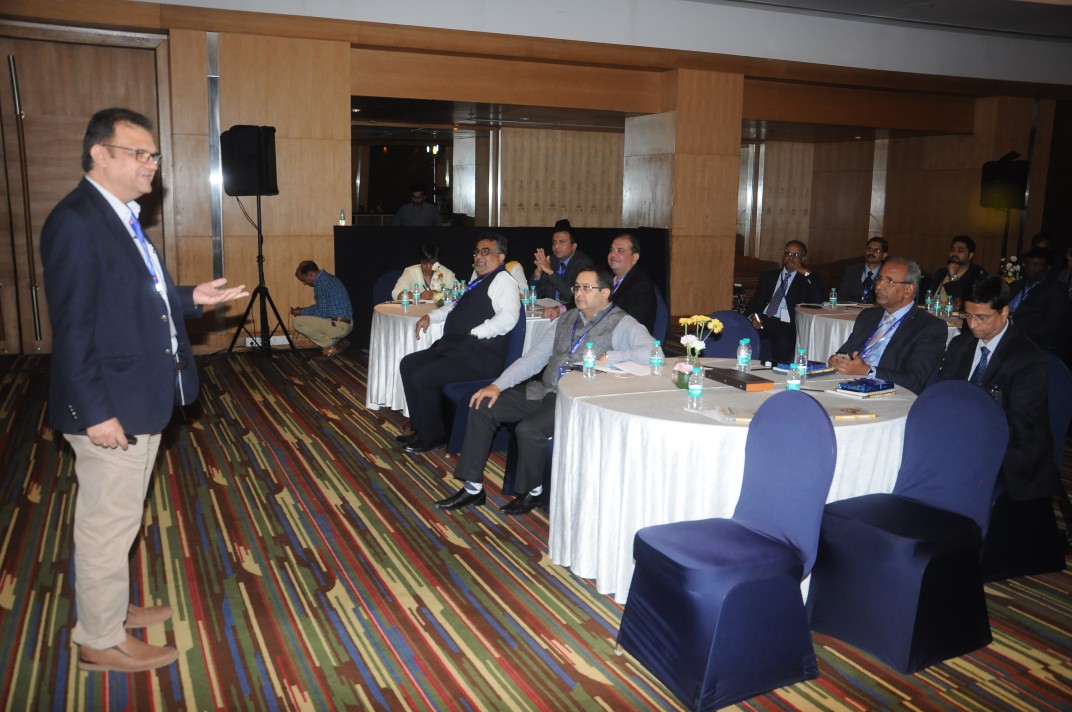Hot topics
Indian Pharma Market Highlights
Indian Pharma Market highlights for the month of October 2018, brought to you by AIOCD Pharma Softech Awacs.
FLUX – Indian Pharma in the Post VUCA World
Introduction
For decades, leaders and organizations have relied on the...
Sales Force Strategy in the Digital World
Does Your Company Have a Well Thought-out Strategy on...
An Infectious Disease Specialist Speaks to Pharma on How it Needs to Change its Approach
Key Point from the Q &A with Dr. Mandar...
Top 25 Indian Pharma Companies by Revenues in 2024
India pharma is crucial for global healthcare, providing affordable...
Top 10 Indian Pharma – 2025
India's top 10 pharma companies by market capitalization, offering insights into...
Antibody-Drug Conjugates (ADCs): The Disruptors Leading Oncology’s Gold Rush in 2025
1. Market Overview
The oncology sector remains the most dominant...
FLUX – Indian Pharma in the Post VUCA World
Introduction
For decades, leaders and organizations have relied on the...
Top 25 Indian Pharma Companies by Revenues in 2024
India pharma is crucial for global healthcare, providing affordable...
Top 10 Indian Pharma – 2025
India's top 10 pharma companies by market capitalization, offering insights into...
Antibody-Drug Conjugates (ADCs): The Disruptors Leading Oncology’s Gold Rush in 2025
1. Market Overview
The oncology sector remains the most dominant...
FLUX – Indian Pharma in the Post VUCA World
Introduction
For decades, leaders and organizations have relied on the...
Top 25 Indian Pharma Companies by Revenues in 2024
India pharma is crucial for global healthcare, providing affordable...
Top 10 Indian Pharma – 2025
India's top 10 pharma companies by market capitalization, offering insights into...
Antibody-Drug Conjugates (ADCs): The Disruptors Leading Oncology’s Gold Rush in 2025
1. Market Overview
The oncology sector remains the most dominant...
FLUX – Indian Pharma in the Post VUCA World
Introduction
For decades, leaders and organizations have relied on the...
Top 25 Indian Pharma Companies by Revenues in 2024
India pharma is crucial for global healthcare, providing affordable...
Top 10 Indian Pharma – 2025
India's top 10 pharma companies by market capitalization, offering insights into...
Antibody-Drug Conjugates (ADCs): The Disruptors Leading Oncology’s Gold Rush in 2025
1. Market Overview
The oncology sector remains the most dominant...
FLUX – Indian Pharma in the Post VUCA World
Introduction
For decades, leaders and organizations have relied on the...
Hot topics
Indian Pharmaceutical Innovation – Post TRIPS
It is the twentieth anniversary of the new patent act in January 2025. The post-patent (P20) era is a story of resilience, determination, and charting a course that set global ambitions, a story of finding opportunity in adversity. It is a story for case studies in business schools, in international studies, in global health efforts.
What my Sabziwali taught me about the Internet, Mobile Health & Smartphones
It’s very common for a pharma professional having neighbors, friends and relatives to engage in conversation over medicines. One such conversation – a pleasant surprise – which intrigued me to dig deep into internet dynamics was one with the local roadside Sabziwali.
Deep Bhandari: Human capital holds the highest value for organizations
DigiStorm 2018 was held on 11 September at the Lalit Ashok in Bangalore. The event was headlined by Prabir Jha – President & Global Chief People Officer, Cipla. Deep Bhandari – Editorial Board Member, MedicinMan, gives us the highlights of the post-lunch session.
7 Transitions in Leadership for Indian Pharma Leaders
The rapid pace of change, which began in 2020...
Healthcare Marketing in the Covid-19 Era
How should healthcare business leaders (pharma, devices, diagnostics, disposables...
Top 25 Indian Pharma Companies by Revenues in 2024
India pharma is crucial for global healthcare, providing affordable...
Top 10 Indian Pharma – 2025
India's top 10 pharma companies by market capitalization, offering insights into...
Antibody-Drug Conjugates (ADCs): The Disruptors Leading Oncology’s Gold Rush in 2025
1. Market Overview
The oncology sector remains the most dominant...
FLUX – Indian Pharma in the Post VUCA World
Introduction
For decades, leaders and organizations have relied on the...
Top 25 Indian Pharma Companies by Revenues in 2024
India pharma is crucial for global healthcare, providing affordable...
Top 10 Indian Pharma – 2025
India's top 10 pharma companies by market capitalization, offering insights into...
Antibody-Drug Conjugates (ADCs): The Disruptors Leading Oncology’s Gold Rush in 2025
1. Market Overview
The oncology sector remains the most dominant...
FLUX – Indian Pharma in the Post VUCA World
Introduction
For decades, leaders and organizations have relied on the...
Top 25 Indian Pharma Companies by Revenues in 2024
India pharma is crucial for global healthcare, providing affordable...
Top 10 Indian Pharma – 2025
India's top 10 pharma companies by market capitalization, offering insights into...
Antibody-Drug Conjugates (ADCs): The Disruptors Leading Oncology’s Gold Rush in 2025
1. Market Overview
The oncology sector remains the most dominant...
FLUX – Indian Pharma in the Post VUCA World
Introduction
For decades, leaders and organizations have relied on the...
Top 25 Indian Pharma Companies by Revenues in 2024
India pharma is crucial for global healthcare, providing affordable...
Top 10 Indian Pharma – 2025
India's top 10 pharma companies by market capitalization, offering insights into...
Antibody-Drug Conjugates (ADCs): The Disruptors Leading Oncology’s Gold Rush in 2025
1. Market Overview
The oncology sector remains the most dominant...
FLUX – Indian Pharma in the Post VUCA World
Introduction
For decades, leaders and organizations have relied on the...
MedicinMan was launched in 2011 as India’s 1st Magazine dedicated to the cause of Field Force Excellence in Pharma and Devices.
Read More
Headlines
Top 25 Indian Pharma Companies by Revenues in 2024
India pharma is crucial for global healthcare, providing affordable...
Top 10 Indian Pharma – 2025
India's top 10 pharma companies by market capitalization, offering insights into...
Antibody-Drug Conjugates (ADCs): The Disruptors Leading Oncology’s Gold Rush in 2025
1. Market Overview
The oncology sector remains the most dominant...
Newsletter
Get important news delivered directly to your inbox and stay connected!




